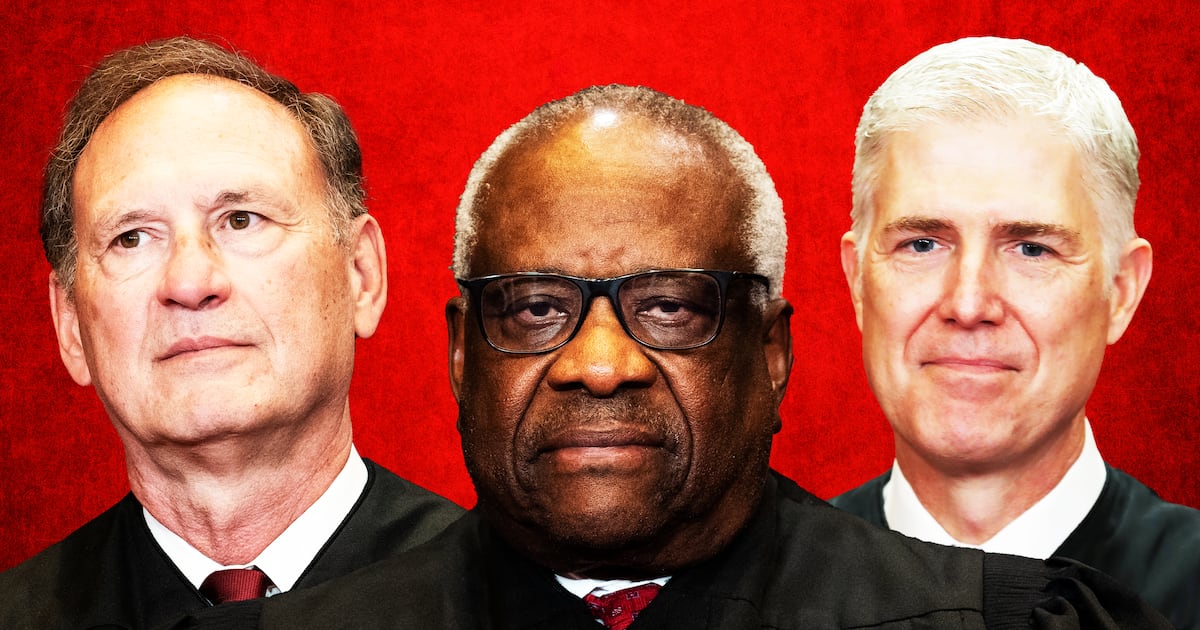Did anyone have a rougher Father’s Day than Tywin Lannister? I mean, honestly: First your daughter tells you she’s been shtupping your elder son for the last 20 years, then your younger son harpoons you in the chest with a crossbow. While you’re on the toilet.
But more on the paternal pyrotechnics later, because as grand, gory, and even gaga as Game of Thrones can be, the show’s most important moments are almost always the quieter ones. And Sunday night’s Season 4 finale, “The Children,” was no exception.
One scene in particular stands out. Early in the episode, Jon Snow visited the injured, imprisoned wildling chieftain Tormund Giantsbane—the one who resembles Alexi Lalas circa 1996—in his cell below Castle Black. They chatted for a bit—Giantsbane asked how the Night’s Watch would kill him; Snow looked away moodily—before Ned Stark’s brooding bastard cut to the chase.
ADVERTISEMENT
“We’re going to burn the bodies of your dead,” he grumbled. “Do you want to say any words over them?”
“Words?” Giantsbane asked. “What kind of words?”
“You know, words,” Snow snapped. “I don’t know how the free folk do it.”
“Do what?” Giantsbane snapped back.
“Say farewell,” Snow replied.
Giantsbane stared at Snow for a second. “The dead can’t hear us, boy,” he finally said.
If “The Children” was about anything, it was about this: not just saying farewell, but discovering that death matters far more to those it leaves behind than to those it levels. In some sense, every season finale is a farewell: plotlines end, people croak, and the rest of us are forced to go on living without our favorite weekly escape, at least for a little while. But only the finest series can say a farewell that adds as it subtracts—that turns a tragic ending for some of its characters into a thrilling new beginning for others, and for the show itself. That’s the kind of finale “The Children” was.
Consider where each of GoT’s main characters wound up when the dust settled Sunday night. At the beginning of the episode, Jon Snow was walking off into the woods to find and kill Mance Rayder, the King Beyond the Wall. By the end of the evening, Stannis Baratheon had swooped in on horseback to save Snow and the rest of the Night’s Watch from near-certain death, outflanking the wildling army right as Rayder realized that Snow’s so-called peace negotiation was actually a thinly disguised assassination attempt.
In “The Children,” Snow had to say farewell to his fallen brothers (burned en masse in the Castle Black courtyard) and his one true love Ygritte (burned privately, romantically in the forest). But those farewells immediately sent his story careening off in intriguing new directions. Will Snow bow to Stannis? Or was Giantsbane onto something when he said that Snow will never kneel again? And what about Rayder, whose life Snow convinced Stannis to spare? Will they join forces and battle the White Walkers together? As Rayder himself put it, “My people are not here to conquer. We’re here to hide behind your wall just like you. We know winter is coming.”
To the north, Snow’s half-brother Brandon Stark suffered the similarly transformative loss of his sickly cheerleader Jojen Reed, who died at the hands of a particularly bloodthirsty subterranean zombie skeleton. For what has felt like years, Bran & Co. have been trudging through the snow in search of the three-eyed raven he kept seeing in his dreams. But now that Jojen is gone, their journey seems to have come to end. One of “the children”—a small, magical race that allegedly predated the legendary First Men—has saved them. She has welcomed them into the Carcosa-like cave beneath the glowing red tree (another mainstay of Bran’s dreams). And she has introduced them to the raven himself, who now appears to be a bearded old man. “I’ve been watching you, all of you, all of your lives—with a thousand eyes in one,” he says. When the raven-man promises Bran that he will “fly,” does he mean the boy is about to morph into mutant bird as well? If so, how will Bran’s mysterious powers and his Chosen One status factor into the oncoming clash with the White Walkers?
Cersei Lannister, meanwhile, was also transformed by a farewell of sorts. After learning early on that The Mountain would survive the Red Viper’s toxic puncture wounds—and that her brother Tyrion would die—Cersei stormed into her father’s chambers, emboldened by the success of her devious plan. Her demand was simple: I will not marry Loras Tyrell (i.e., the “renowned pillow-biter” to whom Papa Tywin has betrothed her). At first, Tywin tried to dismiss her with another one of his “smug stories.” But Cersei held the trump card—“the truth.”
“And what’s that?” Tywin asked.
“Everything they say about me and Jaime,” she replied. “Your legacy is a lie.”
“No, no,” Tywin muttered. “I don’t believe you.”
“Yes, you do,” Cersei said. Then she went straight to Jaime’s room to deliver the news. “I don't love Tywin Lannister,” she purred. “I love my brother. I love my lover.” For too long, Cersei has been playing by her father’s rules. Now she’s writing her own rules, as twisted as they are. Once she was a petty schemer; now she’s empowered. I’m guessing she’ll be even more fun to watch in Season 5—especially in light of what happened to Tywin at the end of the episode.
Showrunners D.B. Weiss and David Benioff didn’t handle every farewell quite so deftly Sunday night. Daenerys Targaryen is still perched atop her pyramid in Meereen, and needy supplicants are still coming to her with their irksome problems. The point, of course, is that conquering and governing aren’t the same thing. But while the death of one of her subjects by dragon did shake up the proceedings a bit—it was oddly but genuinely moving to see a tearful Daenerys chain her screeching offspring to the floor of the catacombs—it didn’t reconnect her to the rest of the drama or give her own narrative any new momentum. Right now, all of Westeros is in glorious, interwoven flux. Only Daenerys’ storyline feels isolated and static.
Fortunately, “The Children” as a whole didn’t have that problem. Together, the episode’s two most stunning farewells neatly encapsulated what makes GoT so great. The first was Brienne of Tarth’s heartbreaking clash with The Hound. Has anyone ever staged a more ambivalent battle on screen? Both combatants wanted the same thing; to keep Arya Stark safe. And yet they were drawn inexorably into armed conflict by their assumptions and misunderstandings—a conflict that degenerated, like a bad joke, from a knightly sword fight to ball-kicking, rock-grabbing, ear-biting fiasco.
In the end, the joke was on both of them: Brienne lost track of Arya and The Hound was “killed by a woman.” Only Arya emerged unscathed, liberated by The Hound’s imminent demise—and the bag of silver she coolly nicked from him—to make her own way across the narrow sea to Braavos.
“You won’t last a day out there,” The Hound groaned as he begged Arya to kill him.
“I’ll last longer than you,” she replied. It’s her way, I suppose, of saying farewell.
If The Hound’s death represented violence at its most meaningless, Tywin Lannister’s death was the opposite: violence at its most just. That Weiss and Benioff could touch on both extremes in the span of 20 minutes—and make each of them feel so human—is a remarkable testament to their skill as storytellers. Freed from his cell by his brother Jaime, Tyrion tiptoed down the hall to his father's boudoir—where he found his former lover Shae half-asleep and whispering “my lion, my lion” in Tywin’s bed. Crying, he strangled her with a chain. Then he proceeded to the privy, crossbow at the ready.
Tywin was surprised to see Tyrion—but not particularly disturbed. “Shaming your father has always given you pleasure, hasn’t it?” he cracked.
“I am your son and you sentenced me to die,” Tyrion replied. “You knew I didn’t poison Joffrey, but you sentenced me all the same.”
“Enough,” Twyin said, gesturing toward his chambers. “Or are you afraid of a dead whore?”
And with that, Tyrion fired his arrow. He was the one who’d had enough—enough abuse, enough betrayal, enough injustice. And so he climbs in a box and boards a ship, bound for who knows where.
Even before I saw “The Children," I had started to think that this was Game of Thrones’ best season yet. But now I’m sure. Last week my reasons would have read like a list of highlights: the Purple Wedding, the Trial of the Century, the Moon Door, the Battle of Castle Black, and so on. Today I realize that it was all about the bigger picture. The world that George R.R. Martin has invented (and that Weiss and Benioff have masterfully translated for television) is like some sort of perpetual-motion machine; the characters are so alive that even killing them off is an act of creation. Every dead end—Tyrion’s execution, Bran’s vision quest, the siege at the Wall, Jaime and Cersei, Arya and The Hound—is now a fascinating new possibility. Every loss feels like a gain. That’s how you tell a story. That’s the best kind of farewell.





